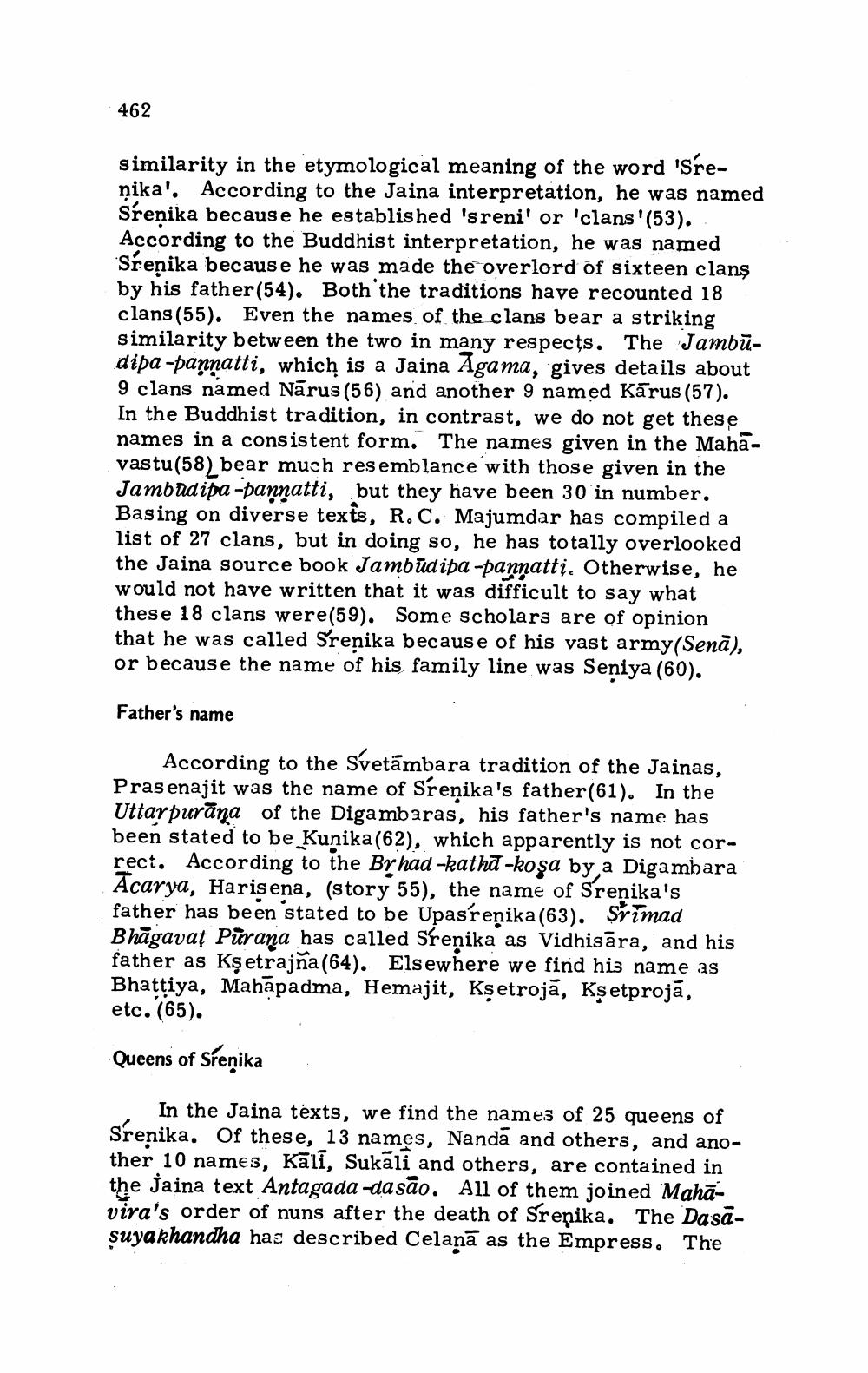________________
462
similarity in the etymological meaning of the word 'Srenika!. According to the Jaina interpretation, he was named Sreņika because he established 'sreni' or 'clans'(53). According to the Buddhist interpretation, he was named Srenika because he was made the overlord of sixteen clans by his father(54). Both the traditions have recounted 18 clans (55). Even the names of the clans bear a striking similarity between the two in many respects. The Jambūdipa-pannatti, which is a Jaina Agama, gives details about 9 clans named Nārus(56) and another 9 named Kārus (57). In the Buddhist tradition, in contrast, we do not get these names in a consistent form. The names given in the Mahavastu(58) bear much resemblance with those given in the Jambadiba -pannatti, but they have been 30 in number. Basing on diverse texts, R.C. Majumdar has compiled a list of 27 clans, but in doing so, he has totally overlooked the Jaina source book Jambudipa -pannatti. Otherwise, he would not have written that it was difficult to say what these 18 clans were(59). Some scholars are of opinion that he was called Srenika because of his vast army(Senā), or because the name of his family line was Seniya (60).
Father's name
According to the Svetambara tradition of the Jainas, Prasenajit was the name of Sreņika's father(61). In the Uttarpurāņa of the Digambaras, his father's name has been stated to be Kunika(62), which apparently is not correct. According to the Br had -kathā -koşa by, a Digambara Acarya, Harisena, (story 55), the name of Sreņika's father has been 'stated to be Upasreņika(63). Srimad Bhāgavat Purana has called Srenika as Vidhisāra, and his father as Kşetrajna (64). Elsewhere we find his name as Bhattiya, Mahapadma, Hemajit, Kșetrojā, Kşetprojā, etc. (65). Queens of Srenika
In the Jaina texts, we find the names of 25 queens of
ka. Of these, 13 names, Nanda and others, and another 10 names, Kāli, Sukāli and others, are contained in the Jaina text Antagada -dasāo. All of them joined Mahāvira's order of nuns after the death of Srepika, The Dasāsuyakhandha has described Celanā as the Empress. The




